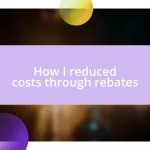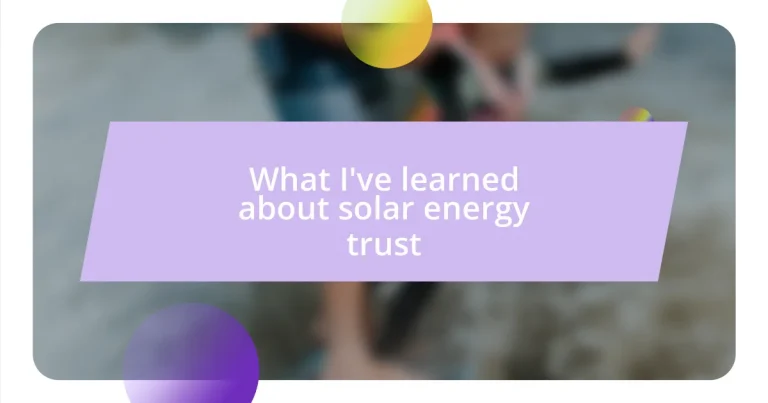Key takeaways:
- Solar energy trusts enable inclusive investment in solar projects, fostering collaboration and community engagement among stakeholders.
- Key benefits include financial accessibility, community resilience, and significant reductions in carbon emissions.
- Challenges faced by solar energy trusts include regulatory hurdles, market price fluctuations, and the necessity for strong community engagement to avoid participant alienation.
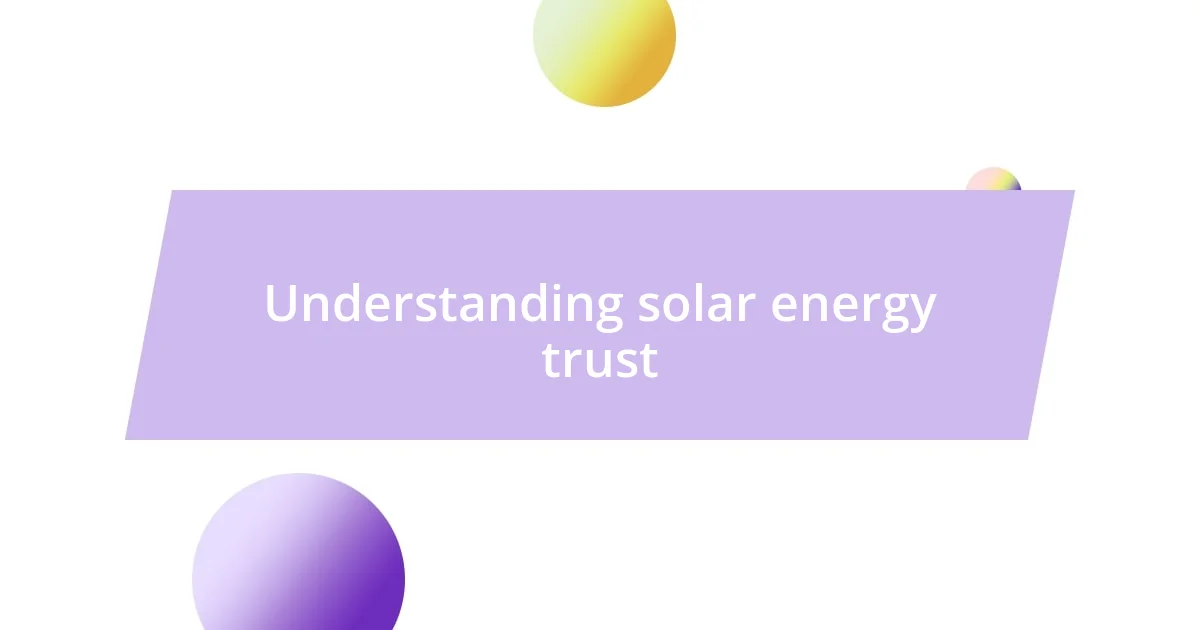
Understanding solar energy trust
Understanding solar energy trust can seem complex, but at its core, it’s about building a collective belief in the potential and benefits of solar energy. I remember my first encounter with this concept during a community meeting. As we discussed local solar projects, I felt the palpable excitement in the room—it was clear that we were envisioning a sustainable future together.
What truly struck me was how a solar energy trust fosters collaboration among stakeholders, including residents, businesses, and investors. I asked myself, “What if everyone could be part of this green revolution?” The answer lies in these trusts, which allow individuals to invest in solar projects without needing to install panels themselves. This inclusivity not only democratizes energy production but also builds a sense of community around sustainable practices.
Moreover, the emotional payoff of participating in a solar energy trust is profound. When I see a solar installation popping up in my neighborhood, I feel a surge of pride knowing that I’m part of a larger effort toward cleaner energy. It’s rewarding to think we are contributing to a healthier planet for future generations. Isn’t it inspiring when our ambitions align with our values?
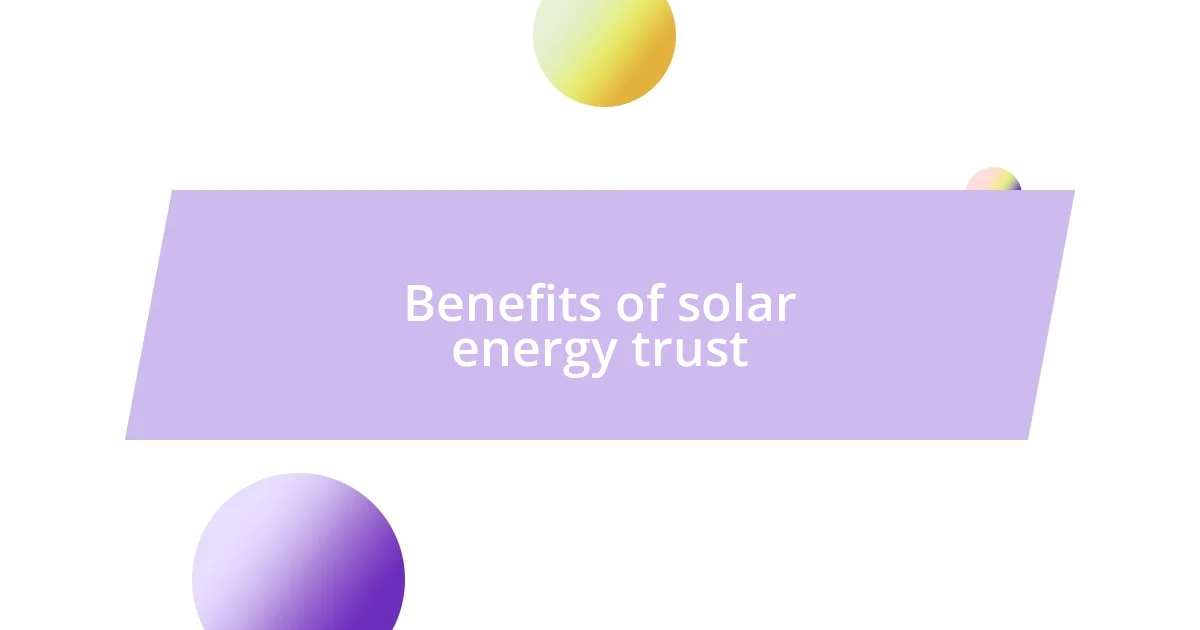
Benefits of solar energy trust
The benefits of a solar energy trust are significant and multifaceted. One of the standout advantages, in my opinion, is the mitigation of financial barriers for individuals. I vividly recall a friend who wanted solar panels but struggled with the high upfront costs. Being part of a trust meant she could invest a small amount and still gain access to solar energy—without the financial strain of direct ownership. It’s amazing how this model opens doors for those who would otherwise be sidelined by high initial investments.
Additionally, solar energy trusts enhance community resilience. I’ve seen neighborhoods transform when they band together to support solar initiatives. Not only did my local community benefit from reduced energy costs, but there was also a palpable sense of unity forged in this shared commitment to sustainability. Trust participants often rally together for educational events, fostering greater awareness of solar energy’s role in combating climate change.
The environmental impact is another critical benefit that cannot be overlooked. By supporting solar energy trusts, individuals are directly contributing to a reduction in carbon emissions. It’s fulfilling to think about my own small investment adding to a larger impact. My joy was unmistakable when I read that our trust collectively prevented tons of greenhouse gases from entering the atmosphere. Moments like this reinforce my belief in the power of community-driven energy solutions.
| Benefit | Details |
|---|---|
| Financial Accessibility | Reduces upfront costs for individuals, allowing participation with smaller investments. |
| Community Engagement | Fosters collaboration among participants, building a sense of unity and shared purpose. |
| Environmental Impact | Contributes to a significant reduction in carbon emissions, promoting a cleaner planet. |
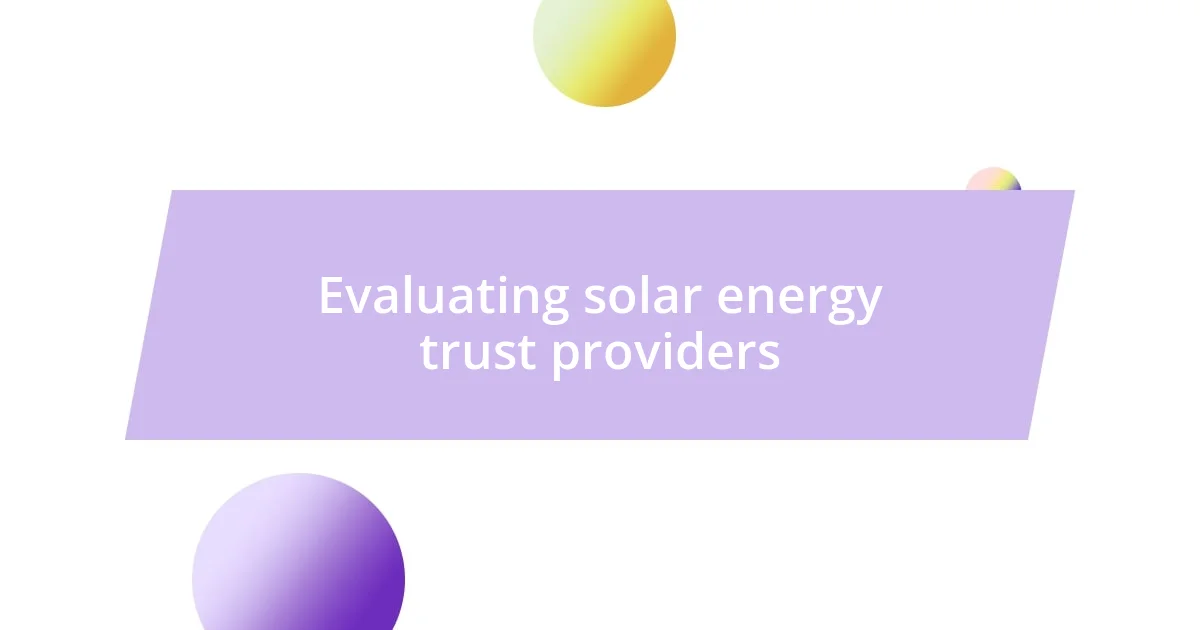
Evaluating solar energy trust providers
When evaluating solar energy trust providers, it’s essential to consider their transparency and track record. I remember attending a workshop where a representative from a local trust detailed their project outcomes and financials openly. This kind of transparency builds my confidence—it reassures me that the trust is committed to ethical practices and accountability. It’s this level of openness that fosters trust among participants and ensures that funds are being utilized effectively.
Here are key factors to assess when evaluating solar energy trust providers:
- Reputation: Research their history and the experiences of previous participants.
- Financial Health: Look at their financial reports and how they allocate funding to projects.
- Project Portfolio: Examine the range of projects they support and their success rates.
- Community Engagement: Consider how involved they are with the community and local stakeholders.
- Customer Support: Evaluate the level of support they provide to participants, especially regarding queries and concerns.
In my journey, I’ve found that the most successful trusts are those that prioritize communication and actively involve participants in decision-making. In one instance, a trust I invested in held regular meetings where everyone could voice their ideas. That engagement made me feel like I was truly part of something larger, and it solidified my commitment to supporting their initiatives. It’s those connections that make this venture so rewarding!
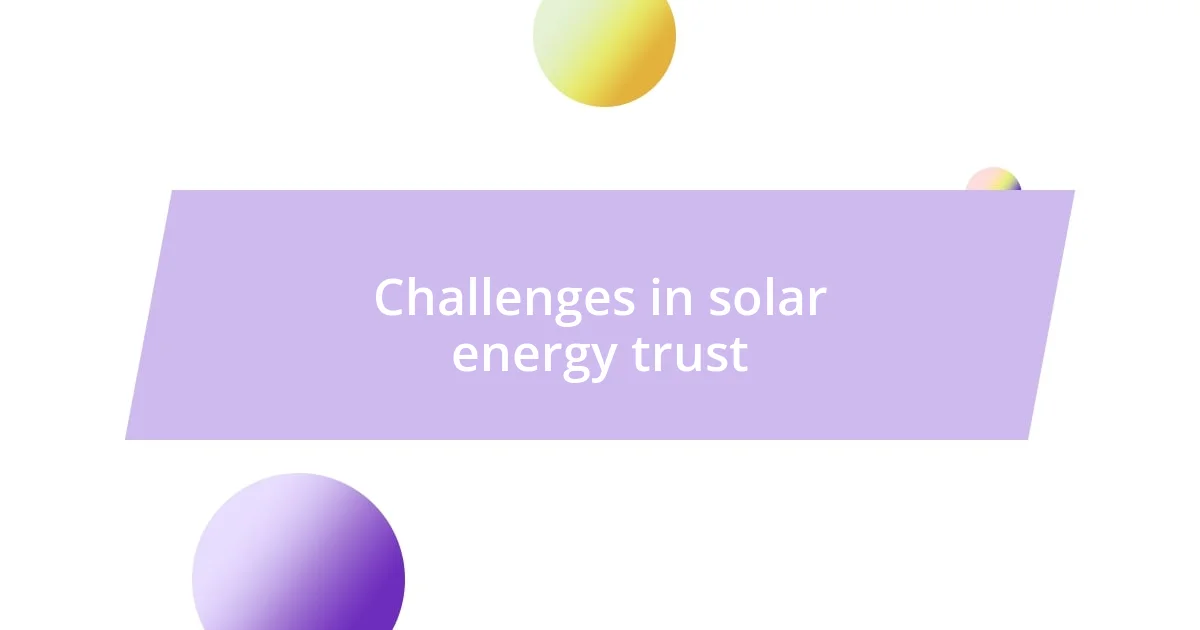
Challenges in solar energy trust
One major challenge in solar energy trust is dealing with regulatory hurdles. I recall speaking with a trust manager who expressed frustration over ever-changing policies that affect renewable energy funding. Navigating those regulations can feel like walking through a maze—time-consuming and often confusing, leading to delays in project implementation.
Another hurdle is the fluctuation in market prices for solar technology. I remember when the cost of solar panels spiked unexpectedly, impacting the overall budgeting for community projects. Such unpredictability raises concerns among trust participants about whether their investments will yield expected returns, which can hinder trust in the whole system.
Lastly, community engagement poses its own challenges. I’ve seen situations where some participants felt left out of key discussions, leading to a disconnect. How can a trust thrive if it doesn’t foster a sense of belonging among its community? I believe that without open channels for dialogue and feedback, trust providers risk alienating those they seek to empower, which defeats the very purpose of coming together in the first place.










